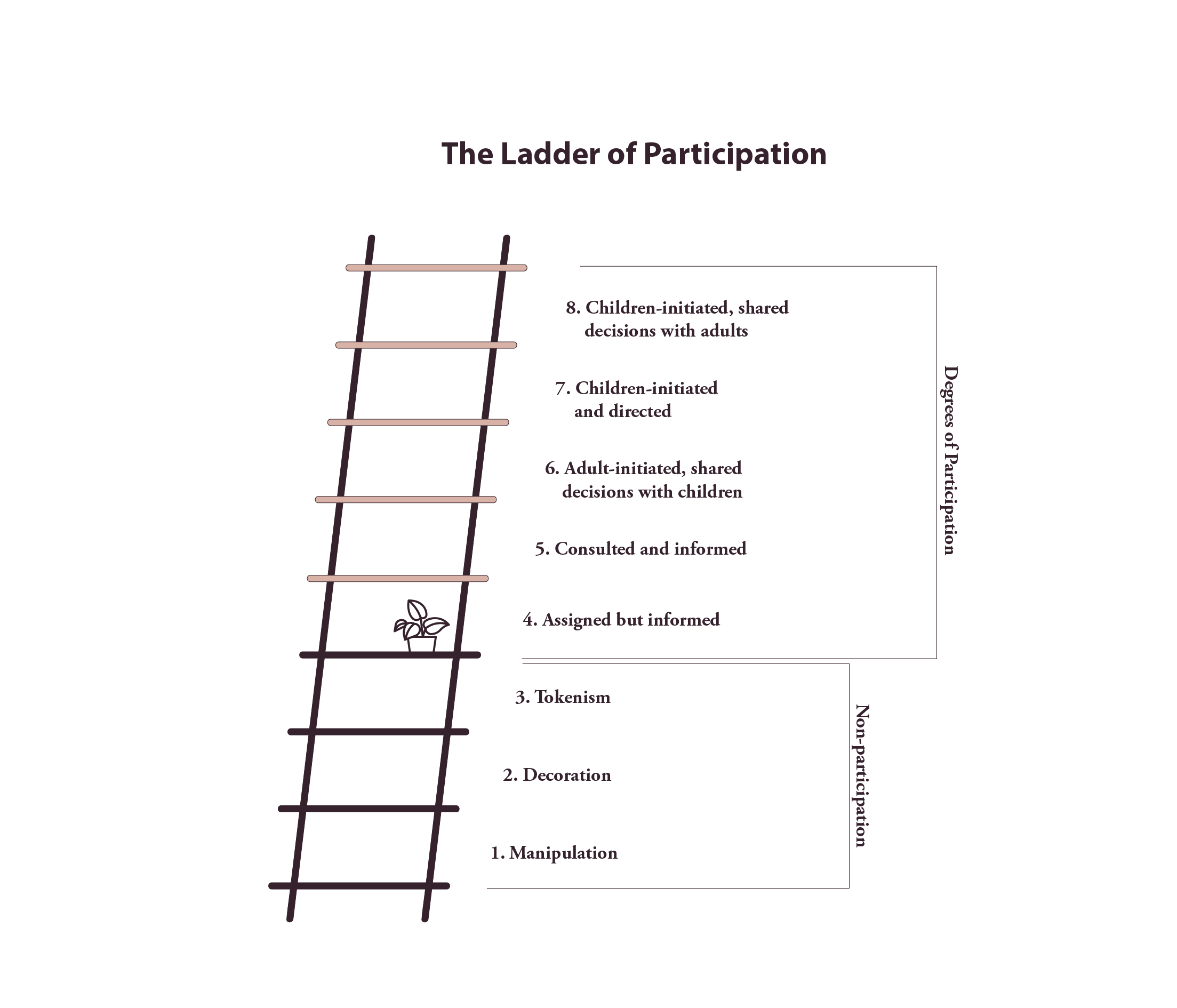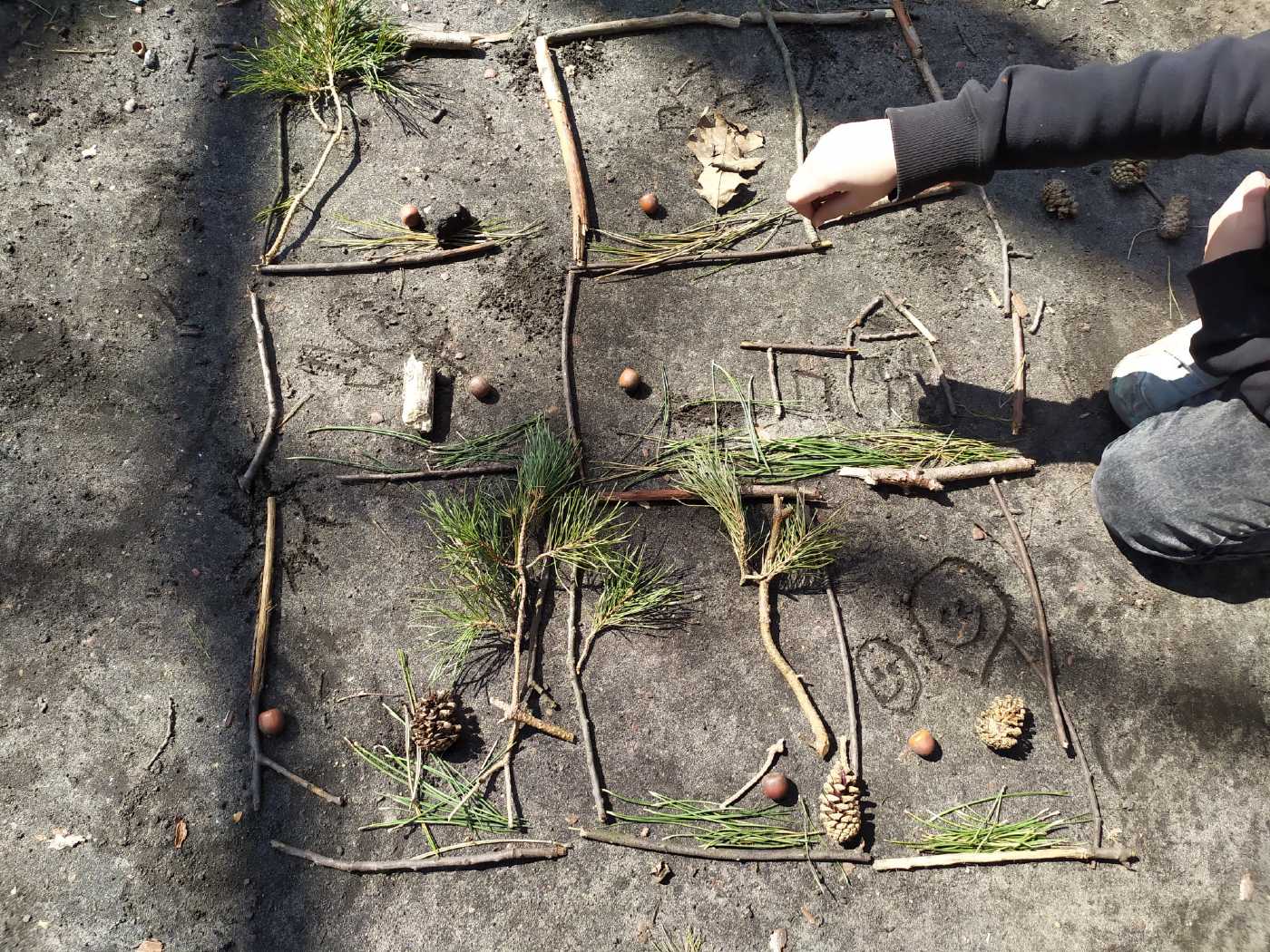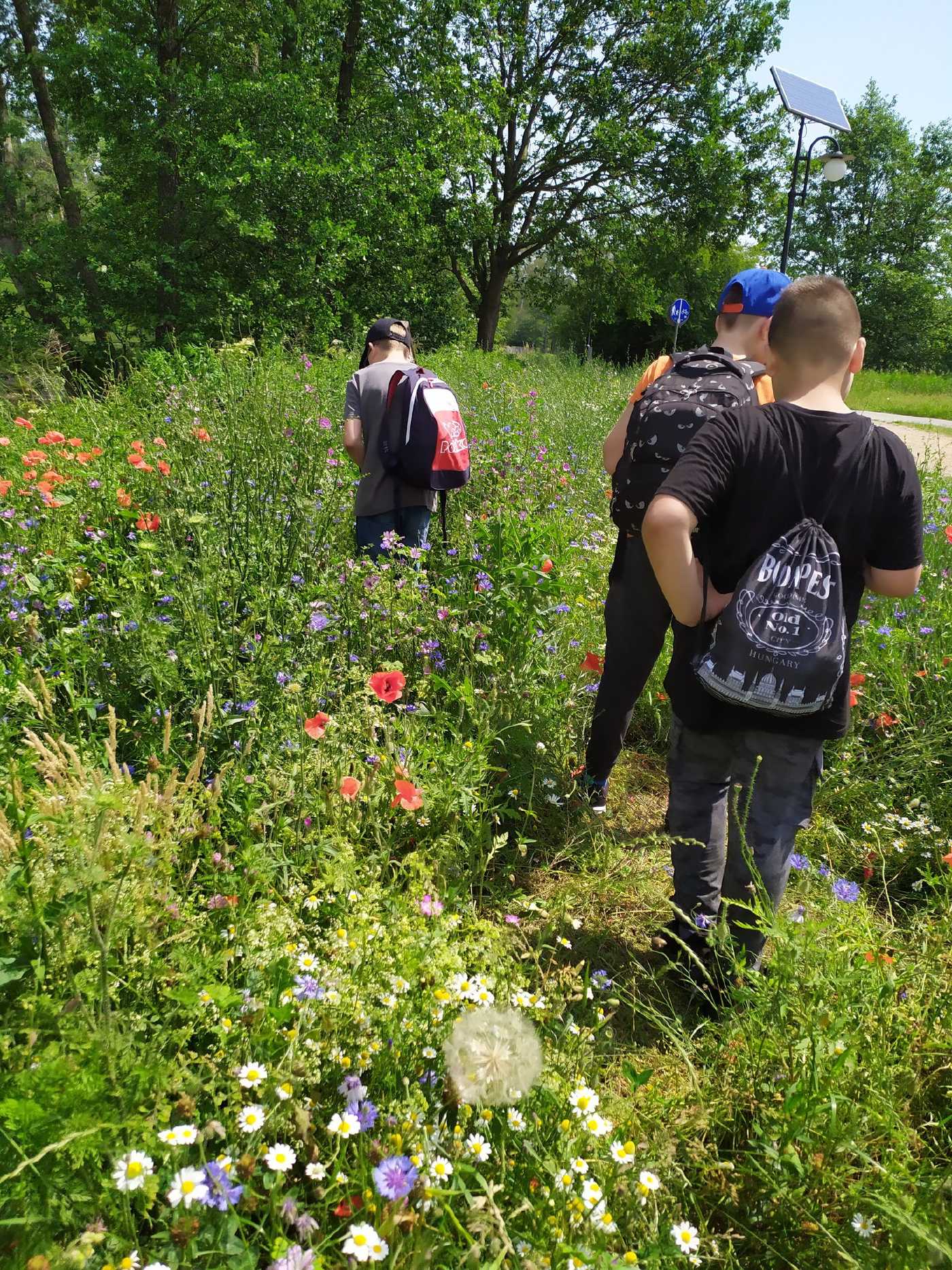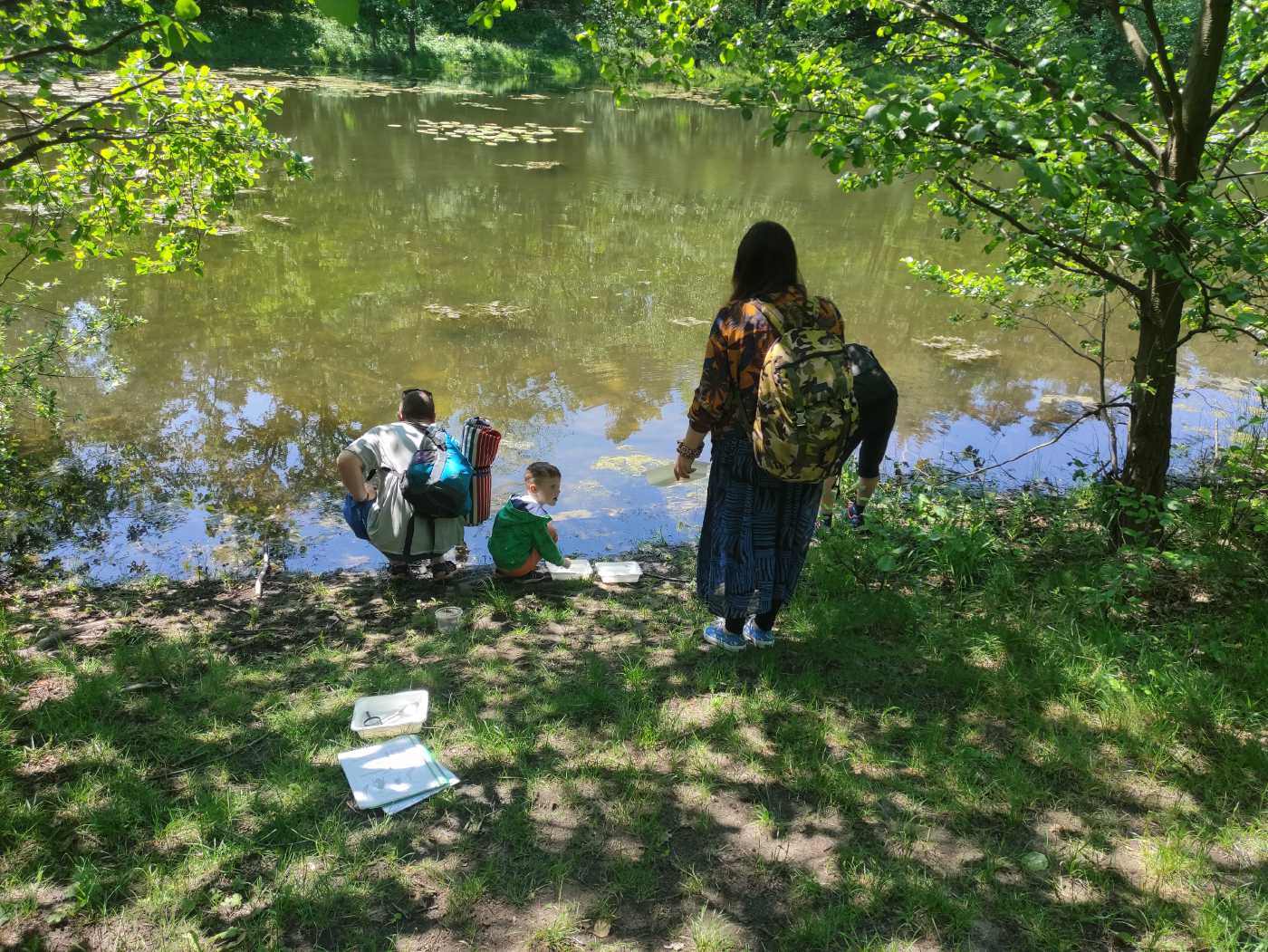Eco-Year in Nature

The students have gained ample knowledge on nature and new skills, but not only that. They have learned to collaborate, they helped each other and had an opportunity to integrate their group better. It also enabled integrating schoolchildren from Ukraine, who were learning to communicate for the time of the project duration, and coped well with relations with their Polish peers, despite the language barrier. The classes filled children with joy and let them use some of their infinite energy, developed creativity and imagination, boosted their concentration and perceptivity skills. They also learned to prepare adequately for a field trip as well as coping well irrespective of weather conditions. The cyclical classes out in nature were a success. The children looked forward to these and approached these with curiosity. I recommend it to all who have some concerns and avoid conducting outdoor classes.
Class tutor of a group that participated in the project
Eco-year with Springs is a year-round cycle of natural science education carried out outdoors, directed to the youngest elementary school students. In 2021 a pilot program was launched, in the year 2022/2023 we are implementing its second edition. The action consists of continuation and expansion of a natural science education program run by the Center for Environmental Action for 25 years. The development and promotion of natural science education realized outdoors is one of the key elements of the association’s development strategy.
A long term project objective is awakening and sustaining a sense of a personal relation with nature in children and adults, and as a result – an inner need to protect it. Despite the entries present in the “common core” in general education (“Podstawa programowa kształcenia ogólnego”), which require teachers to conduct outdoor classes, the practice of many schools (in particular under the pandemic) reduces such education to the bare minimum. Numerous studies1 demonstrate that regular outdoor education brings a wide range of benefits both health-related and educational: it boosts concentration and cognitive ability, it reduces stress, which obstructs the learning process, it decreases hyperactivity and attention-sustaining difficulties as well as improving students’ creativity and involvement, and turns out to be healthier than spending many hours at the desk (it prevents obesity, improves motoric coordination, strenghthes the spine, protects eyesight and enhances immunity).

Groups enrolled in the project take part in the cycle that consists of 5-8 outdoor workshops, which last from 3-5 hours, depending on the time of the year and the weather. During the classes the children learn to identify main plant species at different stages of development as well as their properties, the main bird species, typical animal behaviors, they learn to identify animal tracks and footprints, they get acquainted with terrestrial and aquatic invertebrates and their habits, they develop and boost a sense of orientation in the field, get basic survival training. First and foremost, however, they learn how to look after their own safety, they test their possibilities, learn group work, sharpen all senses while engaging in nature observation, ask questions and look for answers. A trip to the forest also involves warm-up physical activities oriented on getting to know the mechanisms on how nature functions and on retaining the information they have obtained etc. There is also time dedicated to creativity and working with hands (e.g. land art, but also practical classes: building a shelter, weaving a string out of grass), time for eating together, relaxation and free play.
Students visit the same forest or park throughout the program cycle. As a result of regular visits paid to the same area all year round, children develop and enhance the relation with the environment, they gain a sense of being part of it, an understanding that everything is connected, and becoming a “knowing native”, someone who can see things they have not noticed before. On completion of the cycle in June children asked their teachers if they would return to the area in the fall, after the summer vacation.
The project’s crucial outcome is that children have regular contact with nature. A few-hour-long monthly trips to the forest (or large forest parks) are invaluable to children who live in a big city, where experiencing wildlife is limited. The children partaking in the project at first wary of nature, gradually got accustomed to it and grew to enjoy it.
Regular outdoor classes, as expected, proved highly attractive to children. Both teachers and project trainers saw a wide range of positive changes, including more openness, curiosity betrayed by children and fewer fears connected to experiencing nature. The children who were initially afraid of sitting on the grass, touching insects, scramble through the bushes, by the end of the cycle of classes did not have those fears. Also part of parents, initially skeptical, got to approve of regular trips outdoors, as their children were gradually better prepared for the weather conditions. Teachers noticed that children learn a lot while playing and remember a lot, and months later they are able to evoke the information they worked with during those classes. What significantly improved was their sense of orientation, the ability to recognize the cardinal directions, to observe weather conditions, to notice changes in nature, but also their physical shape: endurance (long marches), fitness, balance and fine motor skills.
The teachers that participated in the project also had the opportunity to get accustomed to nature and develop confidence as far as taking students to the forest is concerned. They could observe how children behaved there, that a number of activities stemmed from students’ ideas and interests, and thus there was no need to “fill” all students’ time. Also it became clear that following students’ curiosity plays an important role and that field trips do not require a comprehensive biological knowledge, but they lend an opportunity to learn together and look for answers to reply to the questions that have arisen. By attending trainings as well as observing workshops teachers became acquainted with a wide range of educational methods, games and fun activities focused on nature, which could be applied later on in their teaching practice.
Our association considers testing the practical realization of long outdoor workshop cycles to be a significant outcome. On the one hand the trainers, who, before the project was launched voiced, numerous fears as to how to fill the ample time with attractive activities, confirmed something they had already known, but did not trust their intuition: it’s enough to follow children’s curiosity. The more often children spend time in the forest, the more perceptive they become, they are able to stay focused on a task over longer periods of time, they have more ideas, and they come out with suggestions what they would like to do, what interests them, and thus they deepen their knowledge. On the other hand, we encountered various obstacles: not only the pandemic, but also teacher’s, principals’ and parents’ concerns as to outdoor classes during the cold weather in the fall and winter. It is a challenge to persuade adults that staying outdoors is feasible in all times of the year. It happens that fewer kids come to the first class during the fall/winter season, as their parents are concerned about their health (that they will get cold or soaked etc.). In our experience it is worth taking even a small group of children to outdoor classes (rather than cancel these), as when the children come back happy after their outdoor activities, and no one feels cold despite unfavorable weather conditions, gradually more and more students show up on the following workshops, because their parents begin to overcome their fears and feel more inclined to letting children outdoors not only during sunny weather but also on colder and cloudy days.

What is important, too, is education on dressing adequately to weather conditions among children so that they could take responsibility for their own comfort while attending outdoor classes. Those teachers who regularly took their groups outdoors, were very pleased, children were well-adapted to the weather conditions and didn’t want to finish the class despite cold weather or rain.

Direct and constant relation to nature is indispensable to physical and mental health. Children (and adults) need it as much as healthy nutrition or sufficient sleep. Playing and learning out in the open air boosts concentration, cognitive ability, reduces stress, which obstructs the learning process, decreases hyperactivity and attention difficulties as well as improving students’ creativity and involvement; it is simply healthier than sitting at the desk for many hours per day (it prevents obesity, boosts motoric coordination, strengthens the spine, protects the eyesight and enhances the immune system). It is impossible to enumerate all the benefits that emerge as far as staying out in nature is concerned.
Springs’ experience clearly demonstrates that regular a few-hour long outdoor classes have invaluable influence on students, but also on the whole class as a group. The recent two months, when a number of Ukrainian children joined in, have shown that out in nature it is easier to: communicate across language barriers, engage in group activity, reduce tension and stress. A class tutor from one of the schools in Łódź says: “During outdoor classes I saw Ukrainian kids smile for the first time.” Another teacher remarks: “It’s easier for kids to communicate while working on tasks, Ukrainian children open up sooner, they manage to overcome language barrier, one can see their joy showing.” Importantly, experiencing wildlife and contact with nature does not only enhance integration of Ukrainian students, but also alleviates the stress that Polish teachers have been under over the recent weeks, which have proved highly challenging and distressing.